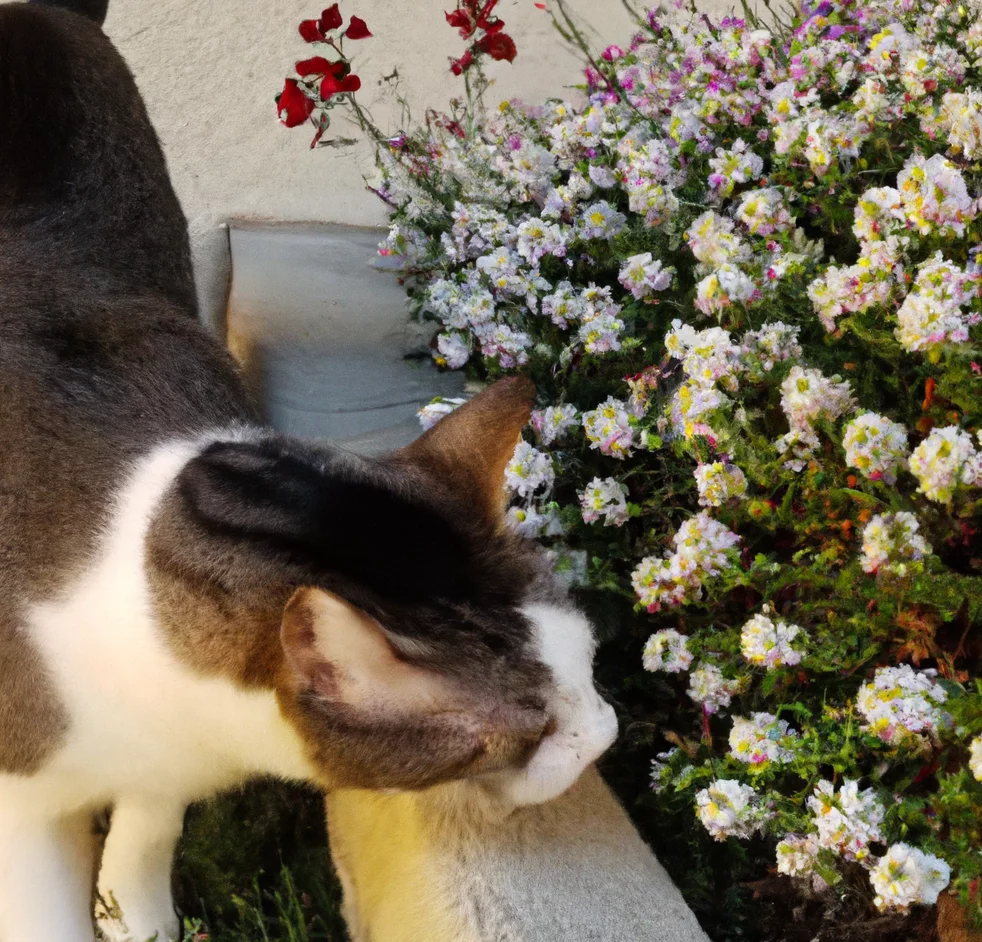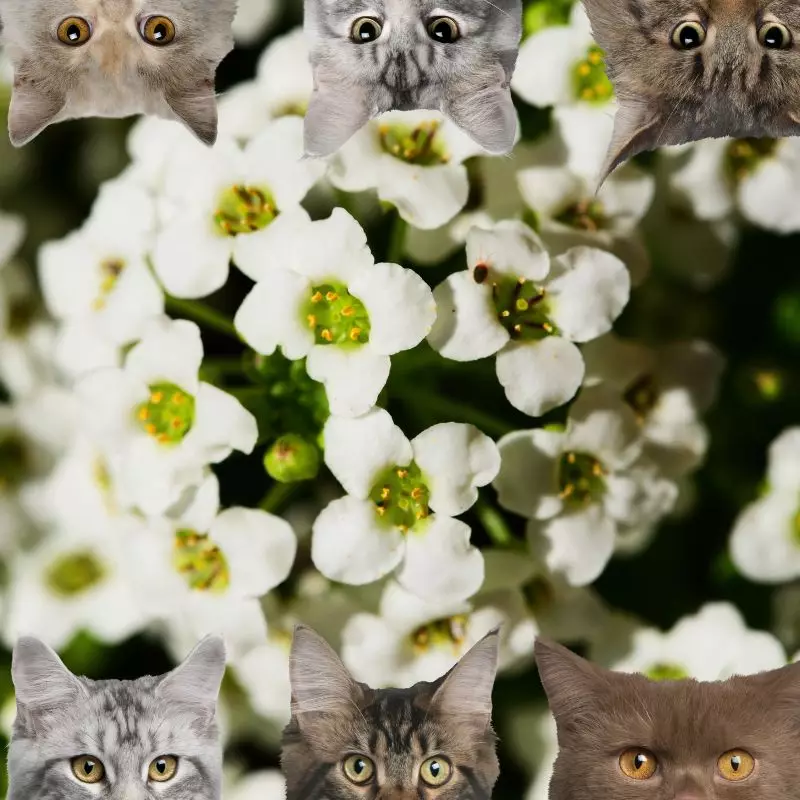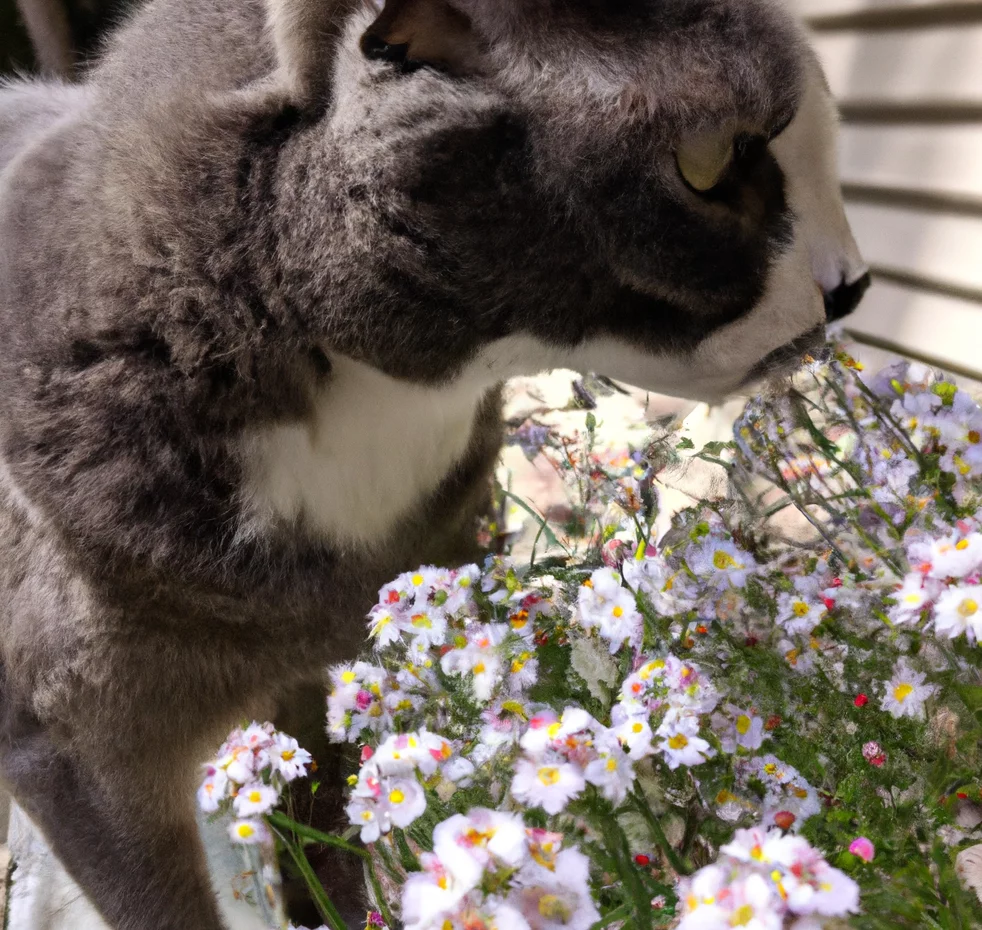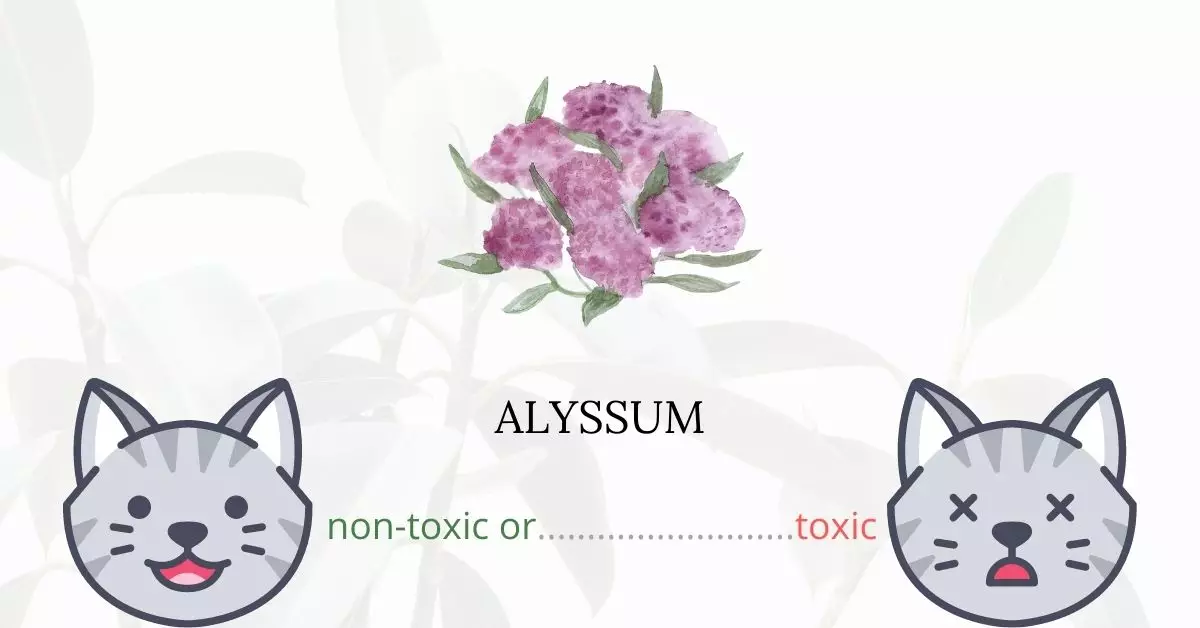The straightforward answer to whether Alyssum is toxic for cats is no; Alyssum is recognized as a non-toxic plant for cats by high-authority entities, including the American Society for the Prevention of Cruelty to Animals (ASPCA) Poison Control Center. This plant does not bear any toxic properties that can inflict illness on your feline companions, and it is also deemed safe for dogs and horses.
This article is penned in collaboration with a team of seasoned Doctors of Veterinary Medicine (DVMs), whose invaluable contributions ensure the provision of accurate and the most current information on the potential risks that various plants, specifically Alyssum in this context, may pose to cats. Through extensive research, including insights from reputable sources such as ASPCA and PetMD, we aim to deliver a thorough understanding of the interactions between various plants and pets.
While alyssum is not harmful, it is crucial for cat owners to still maintain vigilance. Even non-toxic plants like alyssum can cause minor issues if consumed in large quantities, and cat owners should monitor their pets to prevent them from indulging excessively in this plant. Inquisitive cats may find alyssum appealing, so it is essential to observe and control their intake to avoid any potential discomfort or digestive upset.
Can Cats Eat Alyssum?

Cats will not be harmed if they come into touch with an alyssum. It is normally safe for your feline pals to nibble or lick pieces of this plant.
However, cats should avoid eating large amounts of alyssum. This is because cats are unable to thoroughly digest plant particles, which might create digestive problems.
In addition, if cats swallow fertilizers, pesticides, or other chemicals used in plants, they may suffer harmful consequences.
What is Alyssum?

Alyssum is a flowering plant genus native to Europe, Asia, and northern Africa, belonging to the Brassicaceae family. The Mediterranean region has the greatest diversity of this species.
Alyssum can be annual or perennial herbaceous plants or small shrubs. They commonly have oblong-oval leaves that grow around 10 to 100 cm tall belong to this genus. Alyssum produces flowers that are small and clustered in clusters at the stem’s end. They’re generally yellow or white, although they might be pink or purple as well.
Many horticultural variations of alyssum species with purple or pink blooms are grown in gardens. The genus’ flowers are usually white, although they can also be pink or purple. Plant breeders have chosen and strengthened uncommon hues to create a variety of varieties. White varieties are often more strong and vigorous, as well as aromatic.
The plant is best planted in the early spring, but once established, it takes minimal care. In temperate areas, it may reseed despite being an annual plant. Trimming spent blossoms will encourage more flowering. It is commonly used as a groundcover in gardens since it seldom grows more than 20 cm tall. It also grows in cracks in asphalt and buildings and is particularly common at the seaside.
Most alyssum species have a sweet, honey-like scent and clusters of blooms that grow close together. Because of their aggressive nature, several alyssum species are listed as invasive species in various warm-weather locations.
Keeping Cats Away From Alyssum

To be on the safe side, cat owners should keep their cats away from plants.
Placing your plants in a place out of your cat’s reach is a must. If possible, restrict your cat’s access outdoors to avoid encountering toxic plants. Train them to avoid plants outdoors as well.
You can also try using aluminum foil in your gardens as cats hate its crinkly sound and feel. Try wrapping your plant pots or covering the ground near plants in aluminum foil.
Plants to Avoid For Your Cats
If you are a cat owner and unsure if the plants growing in your yard are harmful to your cats, check out this list of toxic plants for cats. You can also check our list of non-toxic plants for cats.





